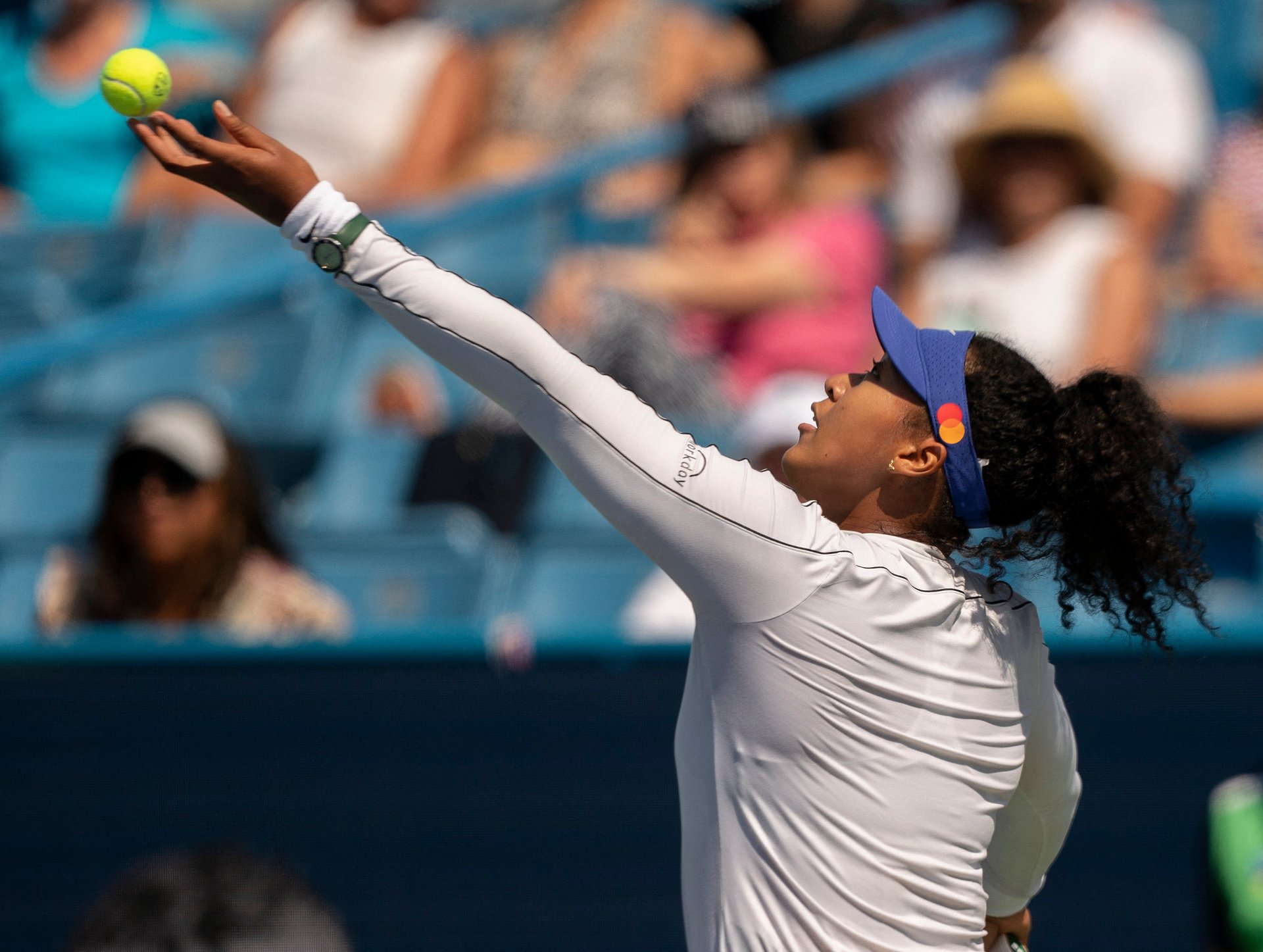Naomi Osaka and Simone Biles are modeling how to stage a career comeback
The two show that quitting can be the right call, and that it doesn’t have to define your career.

Naomi Osaka’s return to the tennis court—slated for next year, as she revealed in an ESPN interview yesterday (Sept. 6)—isn’t just good news for the sport. It’s good news for anyone who’s considered quitting while they’re ahead.
Osaka has been on a deliberate break from competitive tennis since mid-2021, when she opened up about her struggles with depression—and eventually exited the French Open to take care of her mental health. “I think now the best thing for the tournament, the other players and my well-being is that I withdraw,” she wrote at the time, “so that everyone can get back to focusing on the tennis going on in Paris.”
What’s notable, too, is that Osaka walked off the court just as her career was cresting. In 2021, Osaka was rated the second in the world for women’s tennis, with four major titles under her belt. She was the globe’s highest-paid female athlete, lending her name to brands like Louis Vuitton and Sweetgreen. She was the People’s Champion, the megastar, the heir to Serena, the needer of no introduction. She was 23 years old.
She also set a precedent for another athlete at the top of her game. Less than two months after Osaka withdrew from the French Open, then-24-year-old Simone Biles withdrew from competition in the Olympics in service to her own well-being. By the 2021 Tokyo Olympics, Biles was already the most decorated gymnast of all time. But she had also been battling the most challenging years of her personal and professional life: In 2018, Biles revealed she was a victim of sexual abuse from former USA Gymnastics physician Larry Nassar; she would later testify in court about how the organization she was leading to global dominance had covered for her abuser.
As she vaulted off the beam on the fifth day of the competition, spinning in the air, Biles lost herself in space. In gymnastics, it’s known as the twisties: The sudden inability to sense where you are in the air, a disorienting (and dangerous) experience for professional tumblers. So Biles pulled out of the Olympics. “I have to focus on my mental health and not jeopardize my health and well-being,” she tearfully told the press. She’d be on break for more than two years.
“Everybody asks, ‘If you could go back, would you?’” Biles told The Cut seven weeks after she returned home from Japan. “No. I wouldn’t change anything because everything happens for a reason. And I learned a lot about myself—courage, resilience, how to say no and speak up for yourself.”
But when Biles came back this August, she came back with command—and blew the roof off her return. She grabbed the gold medal at the Core Hydration Classic, her first competition since the Tokyo Olympics, and won her eighth US championship, becoming the first American gymnast to earn eight national titles.
Neither Biles nor Osaka need to prove that quitting was the right call. But they also offer an example to other would-be walk-offs. Leaving work to take care of yourself doesn’t have to define your career. Quitting may just be the set-up for your best career comeback.
The case for quitting at the top
Of course, quitting is a privilege, and so is the ability to take a temporary break like a mental health leave. But even those who can walk away from their jobs face a singular anxiety: What if giving up now means I’ll never get my career back?
Conventional advice manages to keep many of us in place, even when we’re churning or burning at our jobs. Quitting, it holds, dings your professional path upwards. There are the old cautions about resume gaps as a red flag, or losing relationships when you leave for personal reasons. But in the last few years, of course, a collective energy suggested it was time to toss out that rulebook. During the Great Resignation we built up burnout, filled out with fed-up, and resigned at record rates. And while we’re no longer quitting en masse, perhaps the lessons we picked up from that shift will stick.
Osaka and Biles have already shown that quitting can be a courageous act. But as they stage their comebacks, they prove, too, that taking time off isn’t necessarily bad for our careers. In fact, honoring the breaks we need can be just the lead-up to a new peak.
